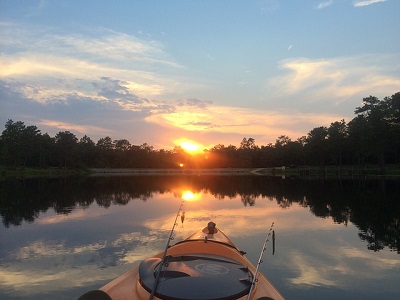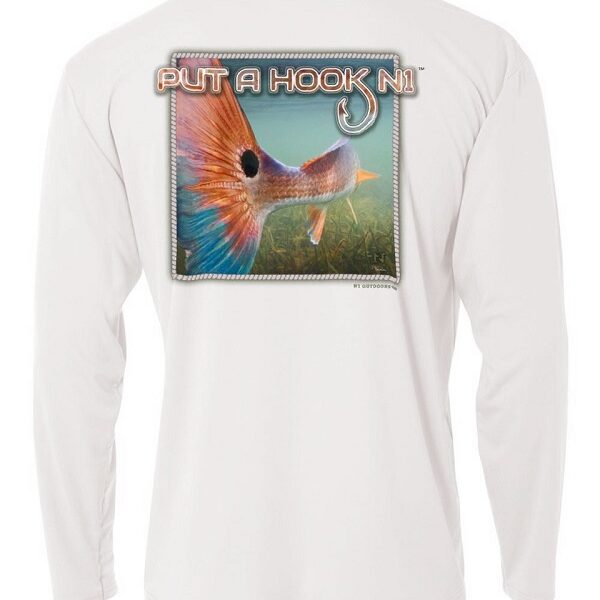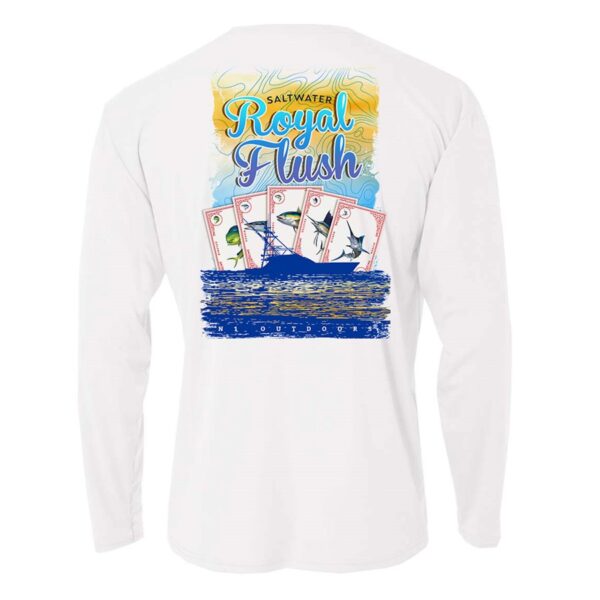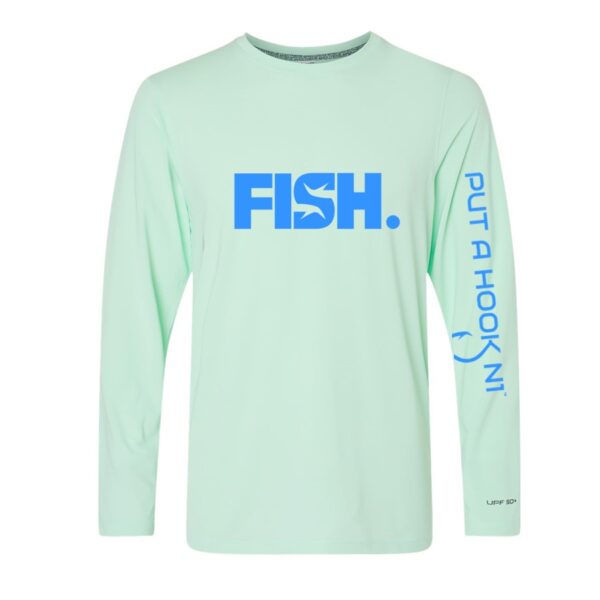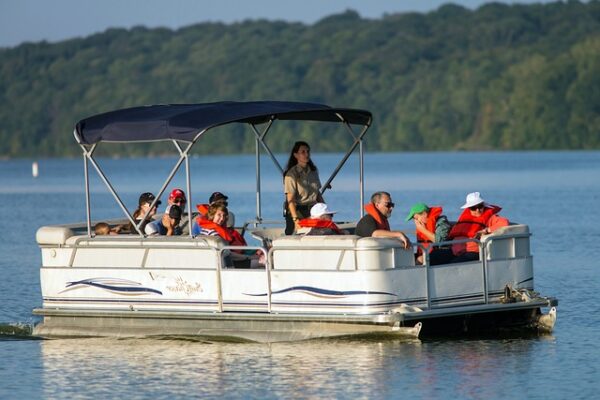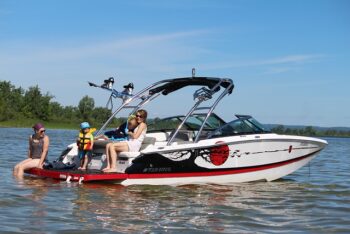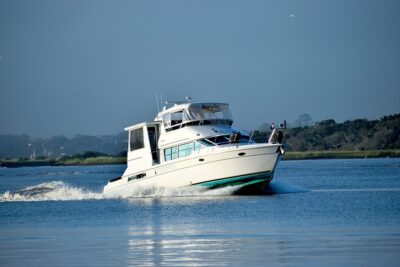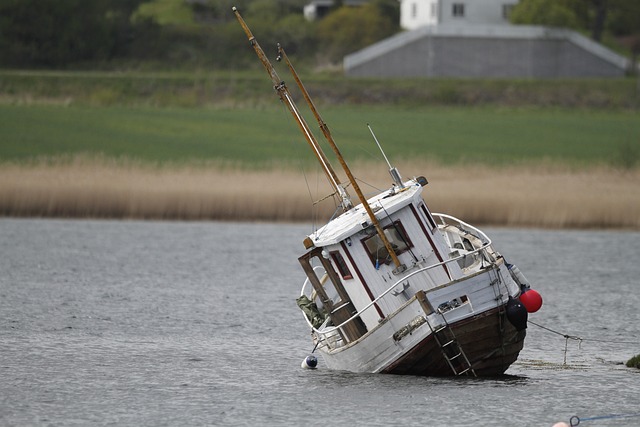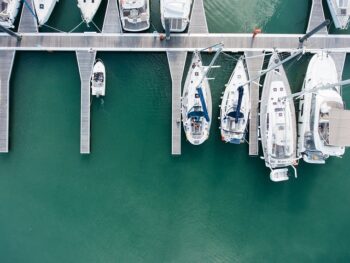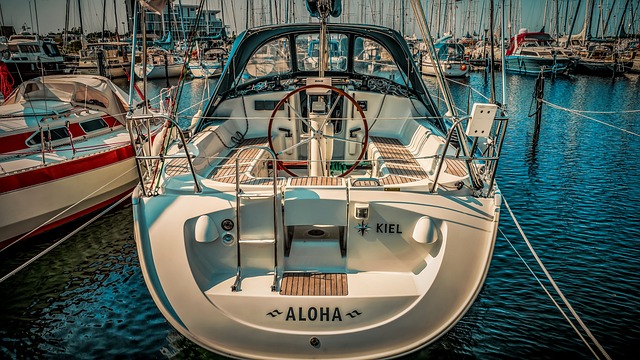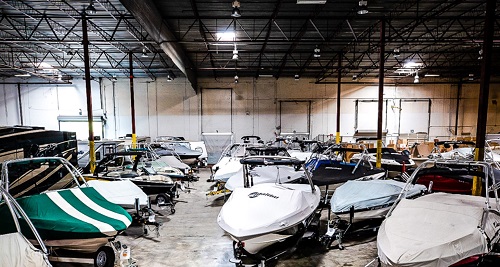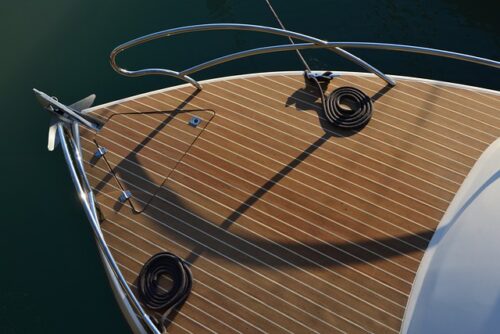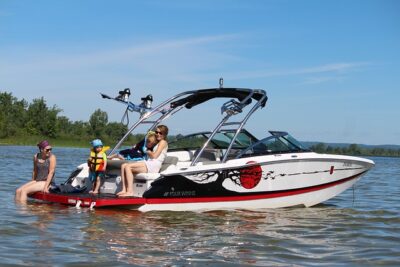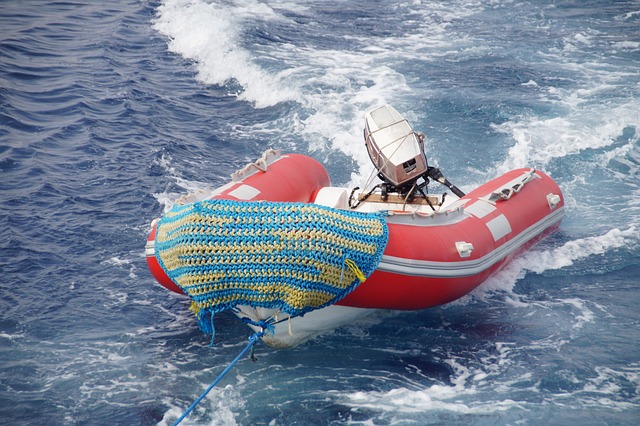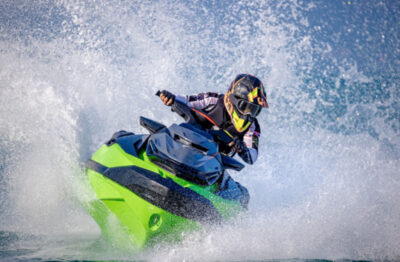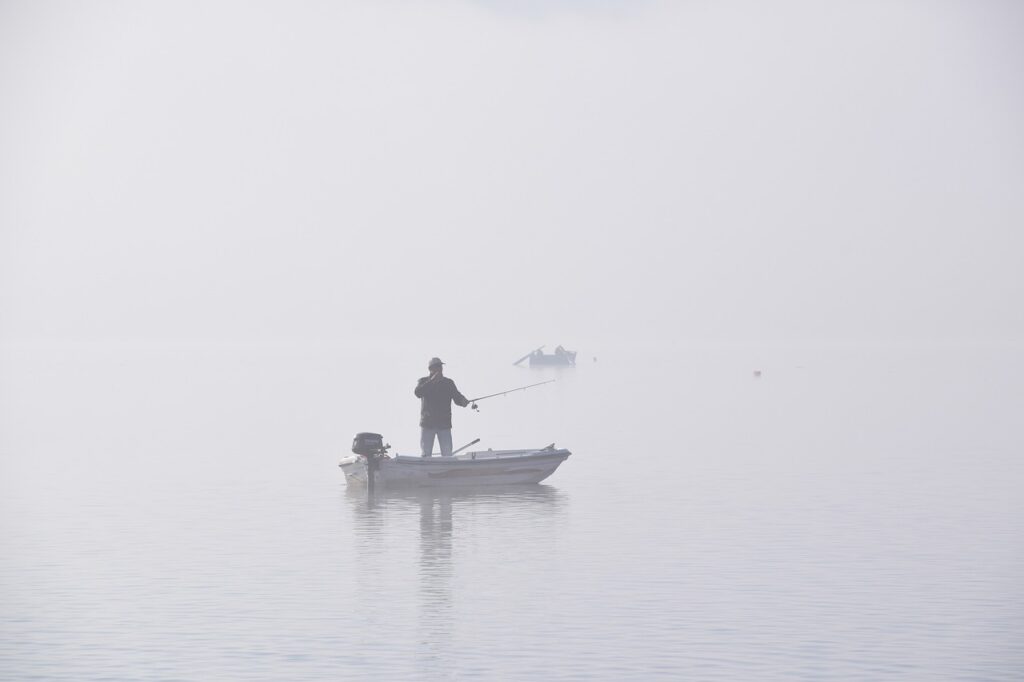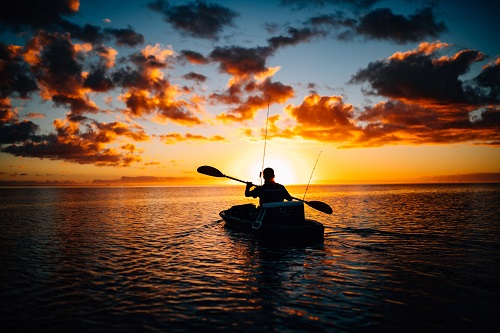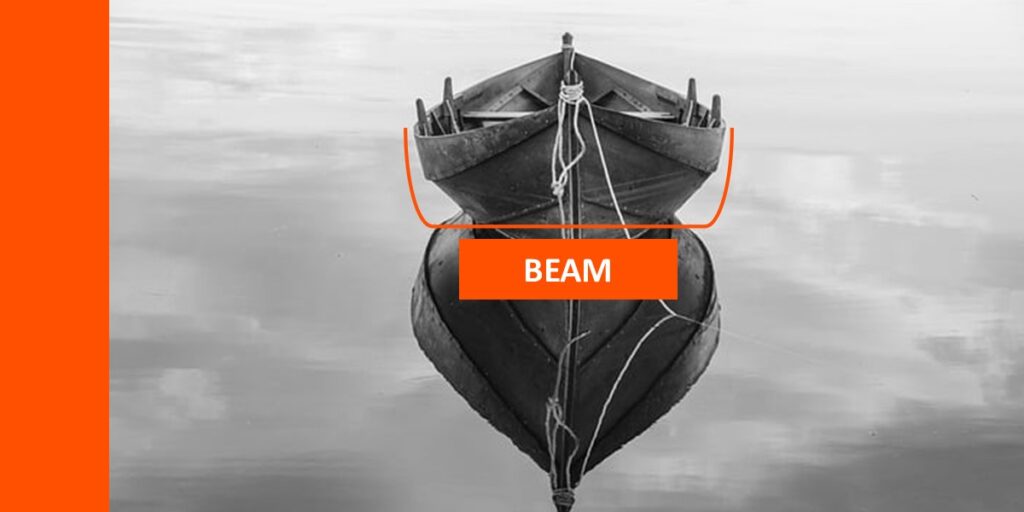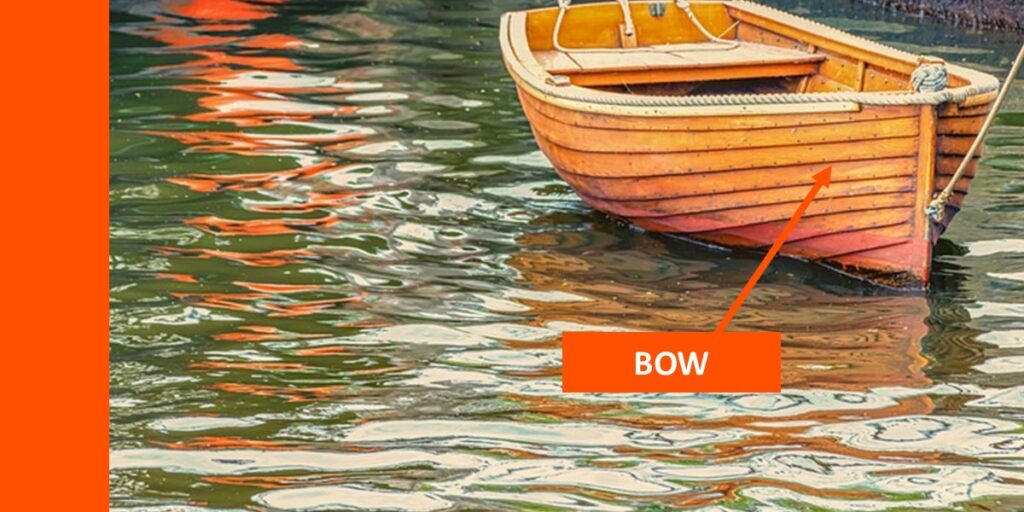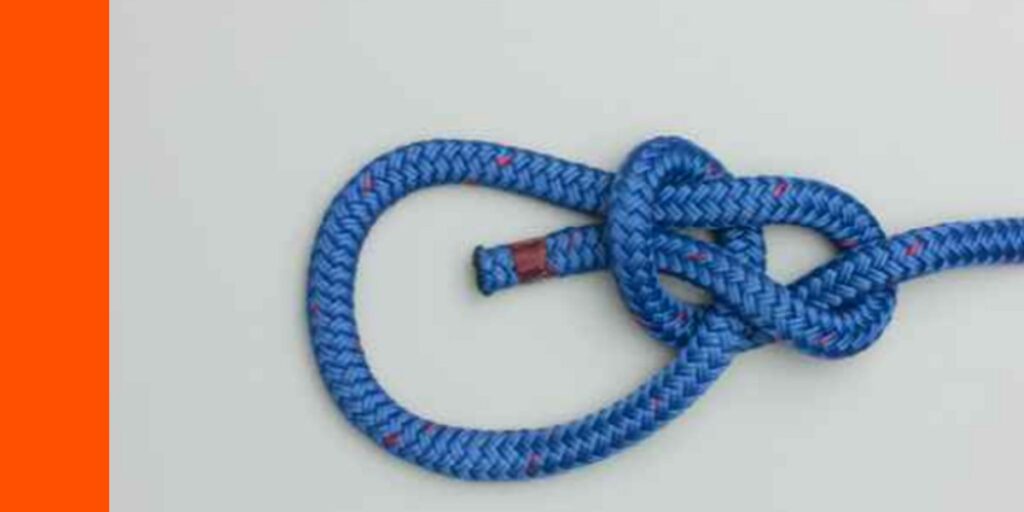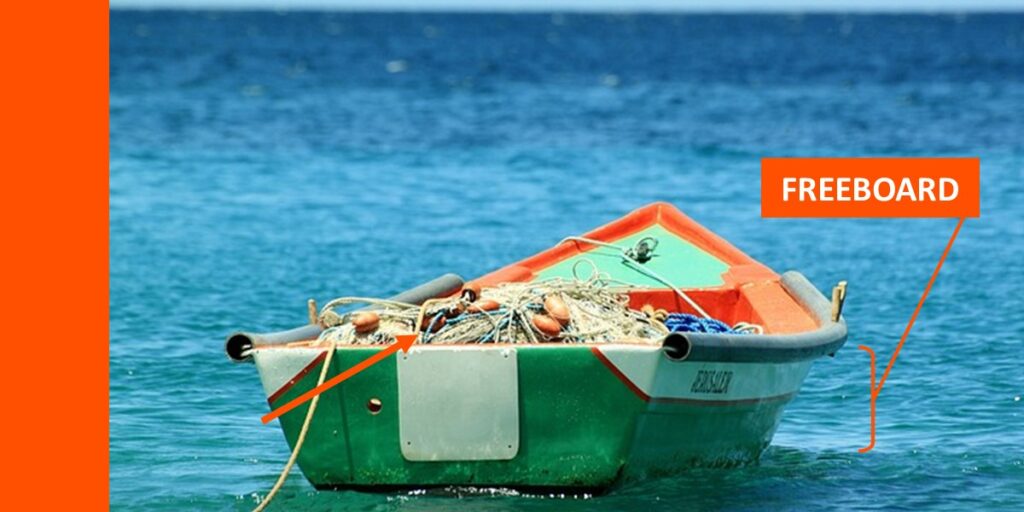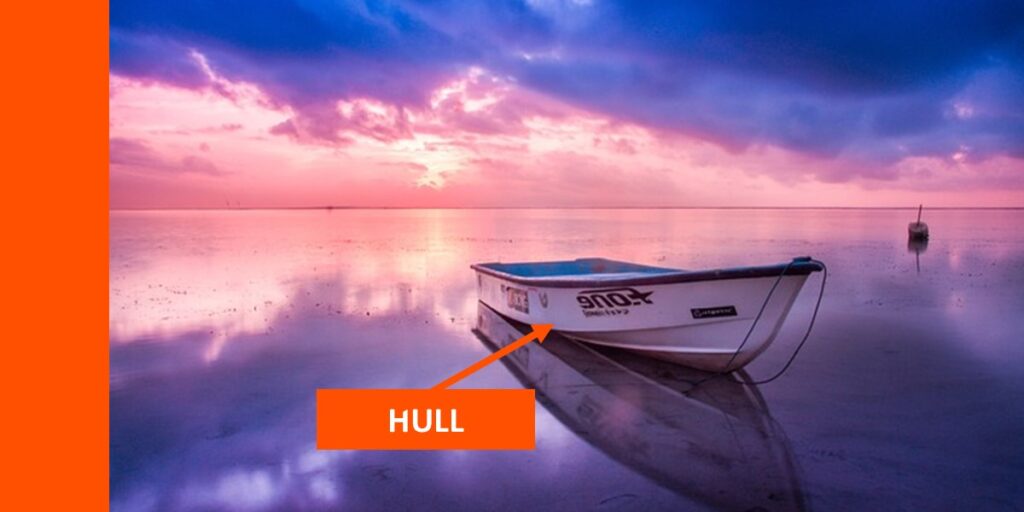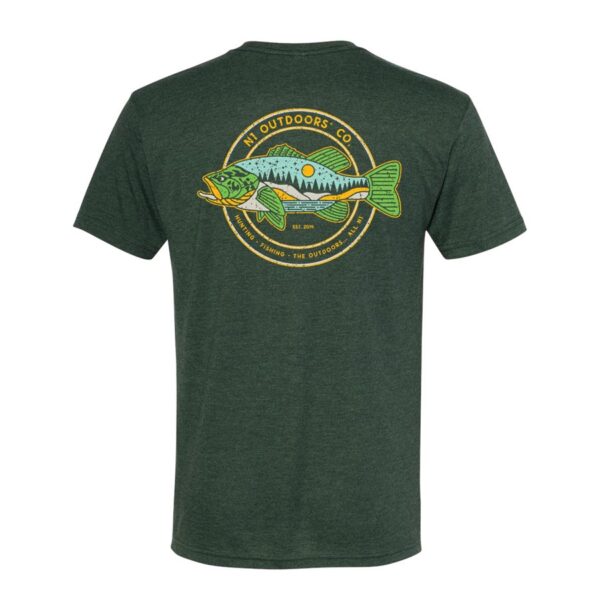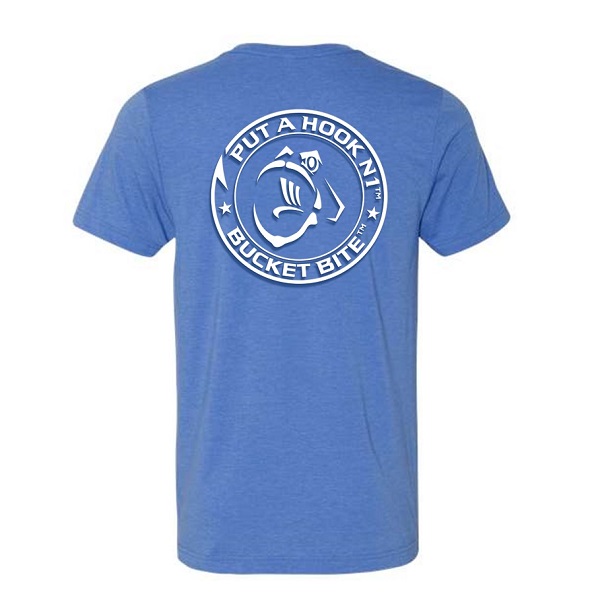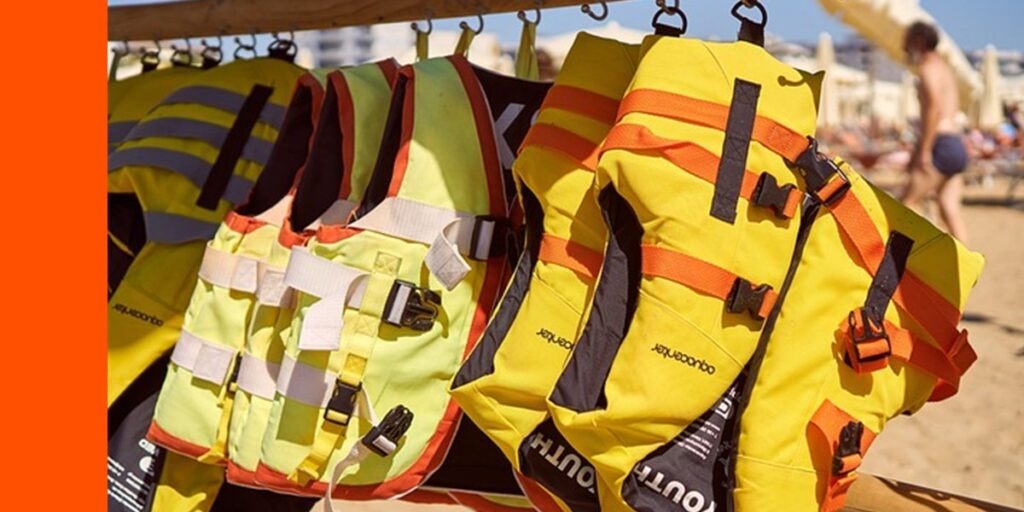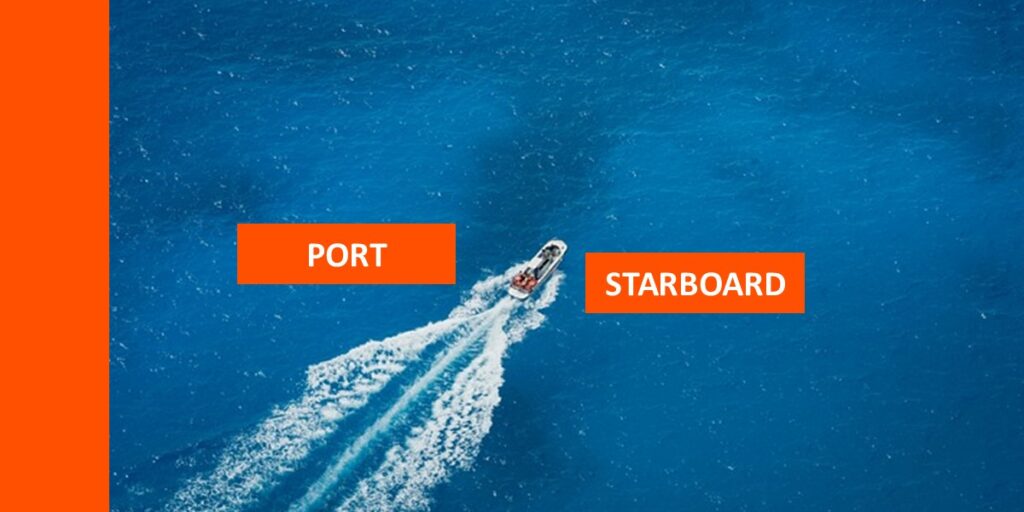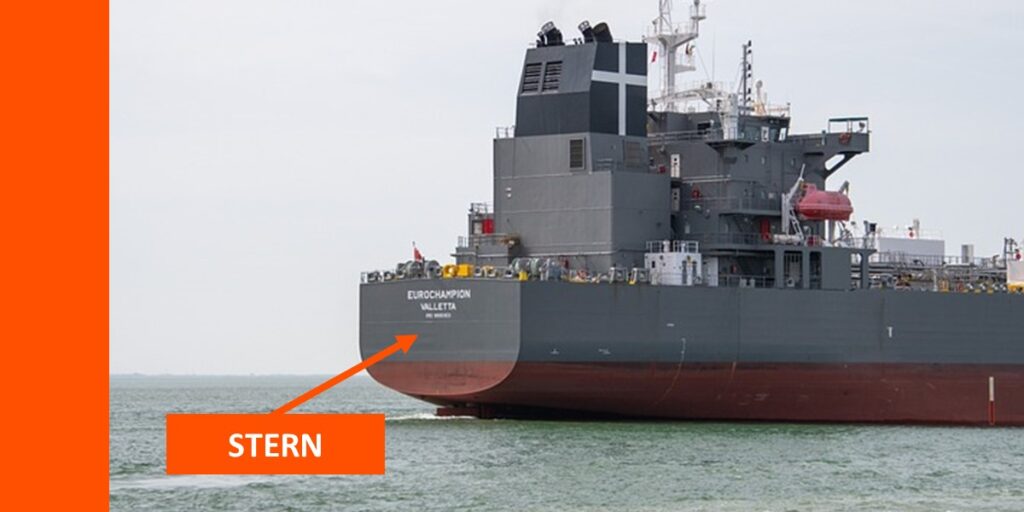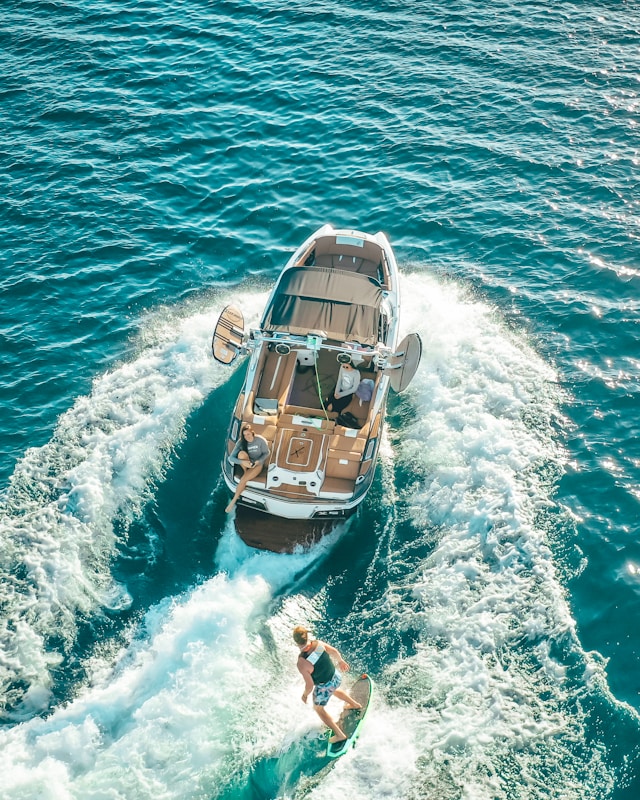If you’re a kayaker, finding the best value kayak launch can make or break your day on the water. Let’s face it, whether you paddle for fun, fitness or fishing, a high-quality launch makes getting in and out of your kayak easier, safer and more enjoyable.
With that being said, some are overpriced, underbuilt or unsuitable. So, let’s take a look at some places you can find great kayak launches for a great price and how to find the one that works best for you.
1. EZ Dock
The EZ Launch system by EZ Dock is one of the most popular choices for modular docking. This system combines innovative design with tough, long-lasting materials for solo paddlers and outfitters alike. It’s especially well-regarded for its floating platform, which adjusts with the water level, making it ideal for lakes, rivers and tidal areas.
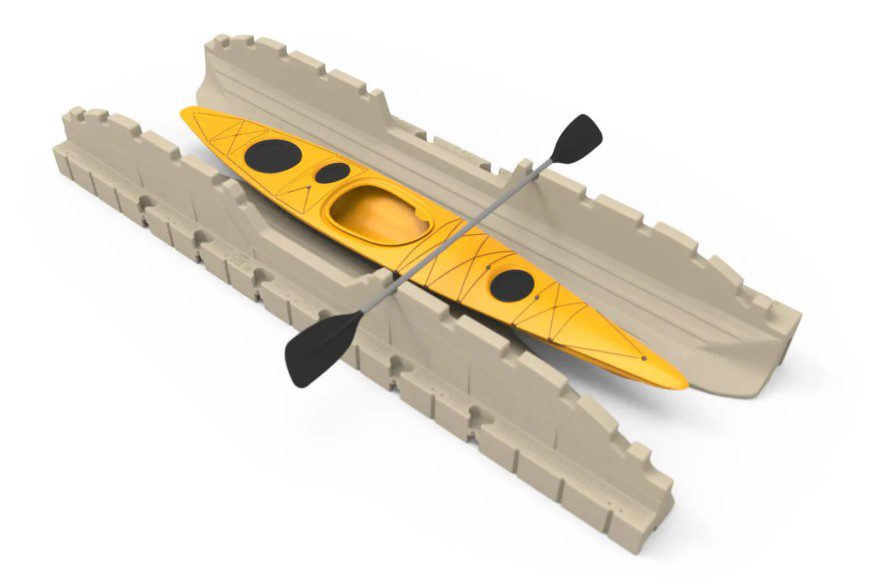
The launch includes integrated rollers that help guide your kayak smoothly in and out of the water. Side guard rails provide balance and support, making it easy to enter and exit your kayak without tipping. EZ Dock also offers ADA-accessible options, allowing for safer access for those with mobility issues. Installation is quick, and the dock integrates easily with existing EZ Dock systems if you already have one installed.
EZ Dock Kayak Launch Key Features
- Floating, adaptive design: The EZ Dock platform rises and falls with water levels.
- Integrated launch rails and rollers: Built-in guide rails and rollers assist in smooth entry and exit, reducing strain on kayakers.
- ADA-compliance: EZ Dock’s offering is designed to meet accessibility standards — perfect for public parks or adaptive programs.
- Slip-resistant surface: The molded polyethylene with anti-slip texture provides safe footing even when wet.
- Expandable modular system: The launch easily connects with other EZ Dock components, allowing for custom configurations and upgrades over time.
- Low maintenance: It’s resistant to rot, splinters and corrosion — just hose it down periodically.
2. Connect-A-Dock
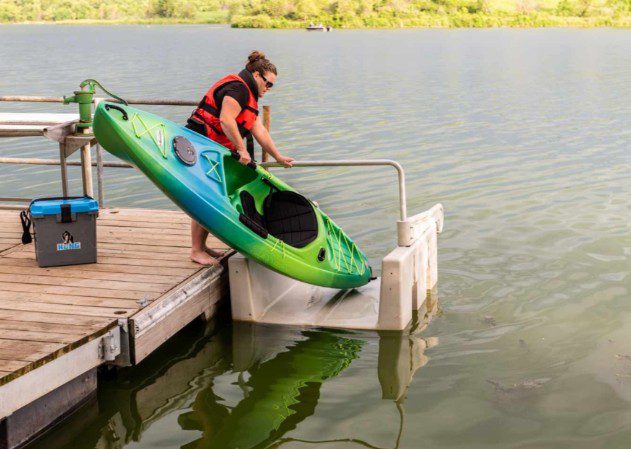
If modular design and long-term flexibility are your priorities, Connect-A-Dock delivers great value. Its kayak launches are made with marine-grade polyethylene that’s UV-protected and impact-resistant, meaning they’ll hold up well in various climates, from hot sun to icy winters.
What makes Connect-A-Dock stand out is its tool-free, modular system. You can assemble or expand it without having to hire a professional installer. The floating design rises and falls with the water, and its texture prevents slips even when wet. Connect-A-Dock offers a variety of accessories like cleats, bumpers and anchoring systems, allowing you to customize.
Connect-A-Dock Kayak Launch Key Features
- Tool-free assembly: The modular design snaps together without special tools, making it an ideal DIY option.
- UV-stabilized polyethylene: They withstand sun exposure and water without cracking or fading.
- Water-level adaptability: The launches float with the tide or changes in lake or river levels, keeping your launch consistent.
- Nonslip surface texture: Connect-A-Dock’s products are designed to improve grip underfoot and reduce slips.
- Compatible with add-ons: You can attach vehicles, bumpers, cleats or ladders to create a customized dock space.
- Commercial or private use: They’re durable enough for high-traffic areas but affordable for personal docks.
-
Put a Hook N1™ UPF 50+ Redfish Performance Fishing Shirt
$22.00 -
N1 Outdoors® Royal Flush™ UPF 45+ Performance Fishing Shirt
Price range: $39.99 through $44.99 -
N1 Outdoors® FISH. Performance UPF 50+ Shirt
Price range: $37.99 through $39.99
3. Golden Boat Lifts
Golden Boat Lifts is known for industrial-strength water access systems, and its Kayak Launch is no exception. Though priced a bit higher than others on the list, it offers exceptional stability and strength, making it a solid investment for marinas, waterfront properties and even adaptive paddling programs.
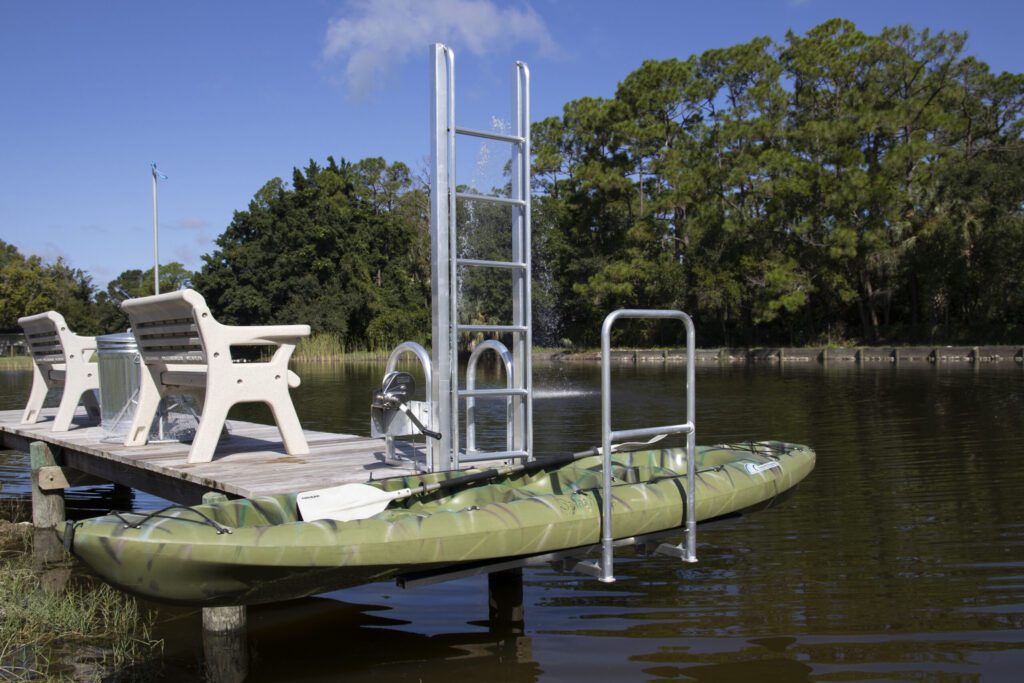
Golden Boat kayak launches are made from corrosion-resistant, marine-grade aluminum and is meant to last decades with minimal maintenance. It’s a fixed unit, so it’s best for places where water levels don’t fluctuate dramatically. The launch includes a wide, stable platform, integrated handrails for safety and a gentle ramp with grooved steps for easy walking, which make it ideal for heavier kayaks and even rowing shells.
Golden Boat Kayak Launch Key Features
- Heavy-duty, fixed construction: The Kayak Launch is constructed from marine-grade aluminum for maximum durability and corrosion resistance and can hold up to 350 pounds.
- Wide, grooved ramp: It provides excellent footing and guides your kayak directly into the water.
- Safety handrails: The design includes sturdy side rails for added balance and security during launch or recovery.
- Zero maintenance: It doesn’t rust, warp or rot, making it a long-term investment for high-use locations.
- Ideal for adaptive and public use: This steady platform suits therapeutic programs or institutions that serve beginners.
4. AccuDock
AccuDock is known for its professional-grade floating docks, and its kayak launches bring that same quality to a more user-friendly scale. They offer a wide, stable surface that sits low on the water, making it easier to slide into your kayak. Thanks to optional handrails, benches and ramps, these are especially good for older users or anyone with limited mobility.
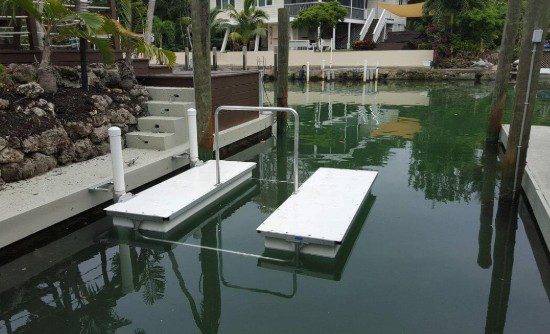
With AccuDock, you can choose from various sizes and different features. The composite decking has excellent grip and can withstand years of exposure to saltwater, sunlight, and temperature extremes. AccuDock also emphasizes environmentally safe construction practices, which is a big plus for eco-conscious paddlers.
AccuDock Kayak Launch Key Features
- Custom-fit design: Launch platforms are built to your site’s measurements and layout.
- ADA-ready: Ramps, benches, transfer platforms and grab bars can be included for full accessibility.
- Low-profile launch surface: They sit close to the water for easy kayak entry and exit, especially from a seated position.
- Sustainable materials: AccuDock uses recyclable and environmentally safe materials whenever possible.
- Durable marine construction: The entity uses combined composite decking with marine-grade aluminum framing for long-term use.
- Great for schools and programs: The selections are ideal for camps, universities and adaptive sports organizations that need tailored solutions.
5. The Dock Doctors
The Dock Doctors employ aluminum and wood dock system specialists based in Vermont and have developed a reputation for sturdy, reliable kayak and canoe launches. They’re especially well-suited for rocky or uneven shorelines thanks to the heavy-duty anchoring systems and floating platforms that adjust to water levels. They offer residential and commercial setups and can customize your launch to include platforms, ramps or gangways that suit your waterfront perfectly.
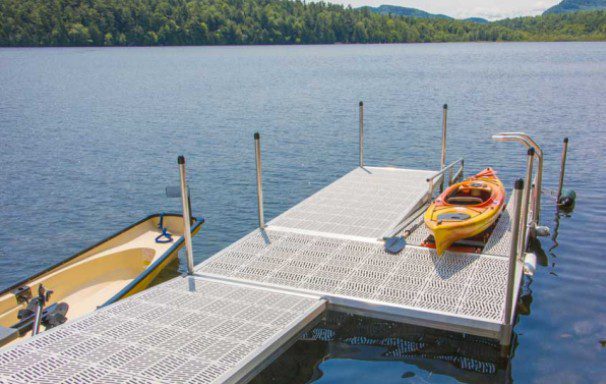
The Dock Doctors stand out for their hands-on customer service and ability to deliver tailored solutions for public and private launch sites. The kayak launch systems are especially popular in areas with challenging shorelines like steep banks or fluctuating water levels, where traditional docks just won’t cut it. The teams also offer site evaluation services and in-house design assistance to ensure the launch fits your exact location.
Dock Doctors Kayak Launch Key Features:
- V-shaped cradle design: Holds your kayak steady for boarding and launching with minimal tipping.
- Built for rugged conditions: Anchoring and structure can handle river currents, rocky terrain and seasonal water level changes.
- Made in the U.S.: Manufactured in Vermont with craftsmanship and regional weather conditions in mind.
- Customization options: Add platforms, ramps, ladders and access rails to suit your exact launch site.
- Free consultations and design support: Great for planning complex or site-specific installs.
What Makes a Kayak Launch a Great Value?
When figuring out where to find the best value kayak launches, it’s important to know what helps contribute to making it “great.” Whether leaving from a private dock, a public park or a rental facility, the right design can ensure a smooth, safe outset. Below are the key factors to look for.
1. Ease of Entry and Exit
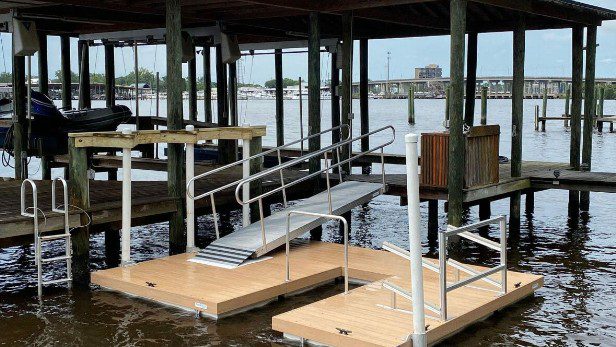
A top-tier kayak launch should make it smooth and straightforward to get in and out of your ride, whether you’re launching solo or with a group. Low-profile access points allow you to slide your kayak into the water easily, while well-placed handrails and grab bars help stabilize you as you enter or exit. For anyone new to kayaking or with limited mobility, this can make a huge difference in confidence and safety.
2. Stability and Safety
Stability should never be an afterthought. The best kayak launches are designed to prevent slips, wobbles and tipping, offering a reliable platform even in wet conditions. Wide surfaces give paddlers plenty of space to maneuver, and secure tie-off points help keep kayaks in place while boarding or unloading. A stable launch platform builds trust in the system and reduces the risk of accidents.
3. Durability in Changing Conditions
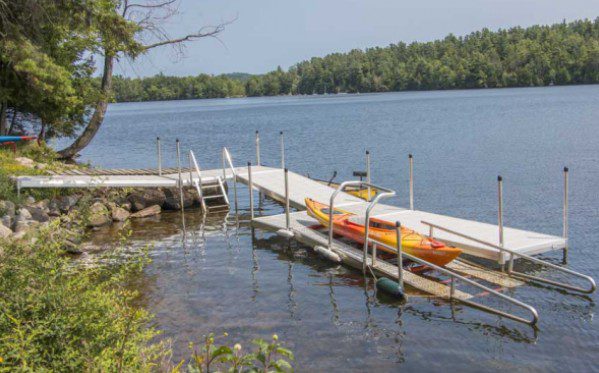
Any type of boating equipment must withstand the elements year-round. The best value kayak launches are made from materials that resist corrosion, warping and UV damage. They should perform well over time without requiring constant repairs or replacement, whether exposed to saltwater, freshwater, or heavy seasonal use.
4. Accessibility and ADA Compliance
Many of the best launch systems now offer ADA-compliant features, including transfer benches, ramp access and adaptive equipment to support paddlers with limited mobility. Even if you don’t currently need these features, it’s worth considering options that accommodate a wide range of users, especially if you share the site with the public.
5. Water-Level Adaptability
In areas where water levels change frequently due to tides, rainfall or seasonal shifts, a floating kayak launch is essential. Such designs move with the water, keeping the entry point consistent and safe throughout the year. This adaptability improves convenience and ensures the launch remains functional regardless of environmental changes.
6. Customization and Modularity
A one-size-fits-all solution rarely works when it comes to boating. That’s why the most valuable choices offer modularity, allowing you to build or expand your setup over time. Whether you add rials, bumpers, benches or lighting, a customizable design ensures your launch evolves with your needs. Flexibility is especially helpful if you’re installing it at a site with unique shoreline dimensions or future expansion plans.
7. Value for Money
Ultimately, when people look for the best value kayak launches, they’re looking for a system that performs well over time without breaking the bank. True value isn’t just about upfront costs — it’s about longevity, performance and how much maintenance it needs down the line. A high-value launch will hold up season after season, making it a smarter financial and functional investment.
How to Utilize Your Launch Safely
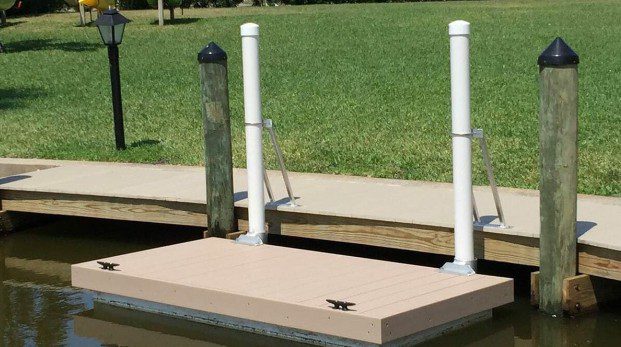
Even kayak launches that look the most promising on paper can fall short in real life. It’s smart to know what to look for ahead of time. Here’s how to assess where you’ll kayak before you show up with your launch.
1. Check Recent Reviews or Local Forums
Before heading out, look up recent reviews, local paddling groups or park websites. Fellow kayakers may share real-time feedback about launch conditions, ease of use, parking access and water levels. This can give you a heads-up about seasonal closures, damage and expected hazards.
2. Look at Satellite Views or Photos
Use Google Maps or the location’s website to see aerial views or photos of the launch. You’ll want to check the shoreline layout, dock setup and overall surroundings. If the area looks too steep, crowded or inaccessible, it may not be the best fit for your gear or skill level.
3. Consider the Surrounding Terrain
Is the path from the parking to the water paved, gravel or grassy? Are there stairs or a steep incline? These details matter, especially if you’re carrying your kayak solo or dealing with mobility challenges. A great launch should offer a clear and safe route to the water.
4. Evaluate Water Conditions
Calm, shallow water is ideal for launches, especially for beginners. If you’re scouting a launch for the first time, look for information on current speed, wind exposure and nearby boat traffic. Some locations may look great but have difficult currents or busy marinas that aren’t beginner-friendly.
5. Check for Amenities and Accessibility
Facilities like bathrooms, rinse stations and kayak racks can make a huge difference in your overall experience. If you need ADA-compliant access or want to avoid rugged trails, confirm whether the launch includes ramps, handrails or adaptive features. You can usually find these on official park or marina pages.
Make Your Launch Work for You
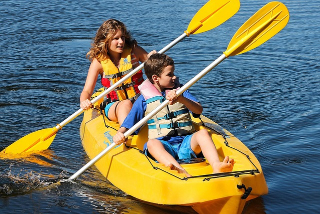
Kayaking is great fun for all ages. So, be sure you start with a great launch!
Finding the right launch doesn’t have to be overwhelming. Now that you know where to find the best value kayak launches, you can make an informed choice that fits your space, water conditions and skill level.
Whether you need a simple floating dock or an ADA-compliant setup, the best launch is one that gives you safe, consistent access to the water.
So, get out there on your kayak and fish, float and paddle!

